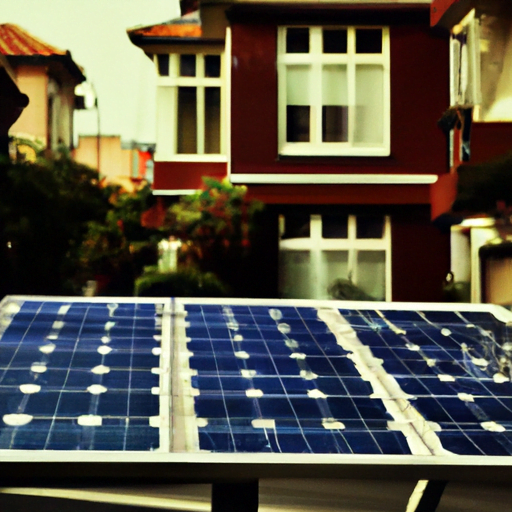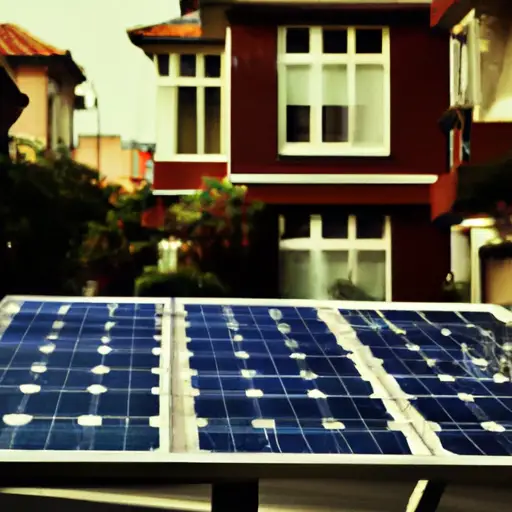Living off-grid has long been associated with remote locations and the pursuit of self-sufficiency. However, as our society becomes more conscious of sustainability and minimizing our ecological footprint, the idea of living off-grid in a city is gaining traction. But is it truly possible? Can you rely solely on renewable energy, grow your own food, and disconnect from the grid when surrounded by the hustle and bustle of urban life? In this article, I will explore the challenges and possibilities of living off-grid in a city, and whether it is a feasible lifestyle choice for those seeking a more sustainable way of living.

Challenges of Living Off-Grid in a City
Living off-grid in a city can present a unique set of challenges. From limited space to zoning restrictions, access to resources, and social isolation, there are several obstacles to overcome in order to successfully live off-grid in an urban environment.
Limited Space
One of the biggest challenges of living off-grid in a city is the limited space available. Unlike rural or suburban areas where there may be more land to work with, cities are often characterized by high population density and cramped living conditions. This lack of space can make it difficult to implement off-grid systems such as solar panels or rainwater harvesting, which typically require ample space to set up. Finding creative ways to maximize the available space becomes crucial in order to sustain an off-grid lifestyle in the city.
Zoning Restrictions
Zoning restrictions can also pose a significant challenge for those who wish to live off-grid in a city. Many urban areas have strict regulations and building codes that may limit or even prohibit certain off-grid practices. For example, some cities may require residents to be connected to the electric grid or prohibit the construction of alternative energy systems. This can make it extremely challenging for individuals who want to rely solely on renewable energy sources or implement sustainable waste management practices. Overcoming these zoning restrictions often requires navigating complex legal processes and advocating for changes in local regulations.
Access to Resources
Living off-grid means being self-sufficient and relying on renewable resources for basic necessities. However, in a city setting, access to these resources can be limited. For instance, finding a reliable source of clean water for rainwater harvesting can be challenging in metropolitan areas. Additionally, access to affordable and sustainable food sources can also be a hurdle. While urban farming is a potential solution, finding suitable spaces for growing food in a city can be a struggle. It may require innovative solutions such as rooftop gardens or community gardens to ensure a consistent food supply. In essence, finding and accessing the necessary resources becomes a significant challenge for those living off-grid in a city.
Social Isolation
Although cities are typically bustling with people, living off-grid in a city can lead to social isolation. In urban areas, the fast-paced and busy lifestyle often leaves little time for meaningful social interactions. Additionally, the off-grid lifestyle itself can be isolating, as it is not the norm in a city setting. Friends and neighbors may not understand or relate to the off-grid lifestyle, leading to a sense of disconnect and alienation. Building a community of like-minded individuals or joining existing sustainable living groups becomes essential to combat social isolation and create a support system.
Methods for Living Off-Grid in a City
Despite the challenges, there are various methods that can be employed to live off-grid in a city and overcome the obstacles mentioned earlier. These methods include solar power, rainwater harvesting, urban farming, and waste management.
Solar Power
Solar power is a popular method for living off-grid in any setting, including cities. With advancements in solar technology, it has become more affordable and efficient to harness energy from the sun. In a city, this can be particularly advantageous as buildings often have access to direct sunlight. By installing solar panels on rooftops or utilizing vacant lots for solar farms, residents can generate their own electricity and reduce their reliance on the grid. Not only does this provide a sustainable energy source, but it can also lower electricity bills and decrease the carbon footprint.
Rainwater Harvesting
Rainwater harvesting is another effective method for living off-grid in a city. Despite limited space, it is possible to collect and store rainwater for various household uses. Roof gutters can be fitted with collection systems that divert rainwater into storage tanks. This harvested water can then be used for gardening, flushing toilets, or even filtering for drinking purposes with the appropriate treatment. Implementing rainwater harvesting systems not only reduces dependence on municipal water sources but also conserves water and promotes a more sustainable lifestyle within the constraints of urban living.
Urban Farming
Urban farming offers a solution to the limited space and access to resources challenges of living off-grid in a city. By utilizing rooftops, balconies, or vacant lots, individuals can grow their own food in an urban environment. Techniques such as vertical farming, hydroponics, and container gardening make it possible to maximize space and cultivate a wide range of crops. Urban farmers can grow fresh produce for personal consumption or even establish small-scale community gardens to promote food self-sufficiency and community bonding. Urban farming not only provides a sustainable source of nourishment but also beautifies the cityscape and enhances local biodiversity.
Waste Management
Sustainable waste management is crucial for those living off-grid in a city. Recycling, composting, and minimizing waste generation are all essential practices that enable individuals to live more sustainably. In an urban setting, where waste management systems are often centralized, off-grid residents may face challenges in disposing of waste properly. However, by implementing effective waste management strategies within their own homes or communities, individuals can reduce their environmental impact and create a more sustainable living environment. This may involve composting organic waste, repurposing or upcycling materials, and advocating for improved waste management practices at the community level.
In conclusion, living off-grid in a city presents its fair share of challenges, including limited space, zoning restrictions, access to resources, and social isolation. However, with the right methods and careful planning, it is possible to overcome these obstacles. Solar power, rainwater harvesting, urban farming, and waste management are just some of the techniques that can be employed to lead an off-grid lifestyle in an urban environment. By embracing these methods and finding innovative solutions, individuals can create a sustainable and self-sufficient lifestyle, even in the midst of a bustling city. It is a way to reconnect with nature and reduce our impact on the environment while still enjoying the benefits and conveniences of urban living.




